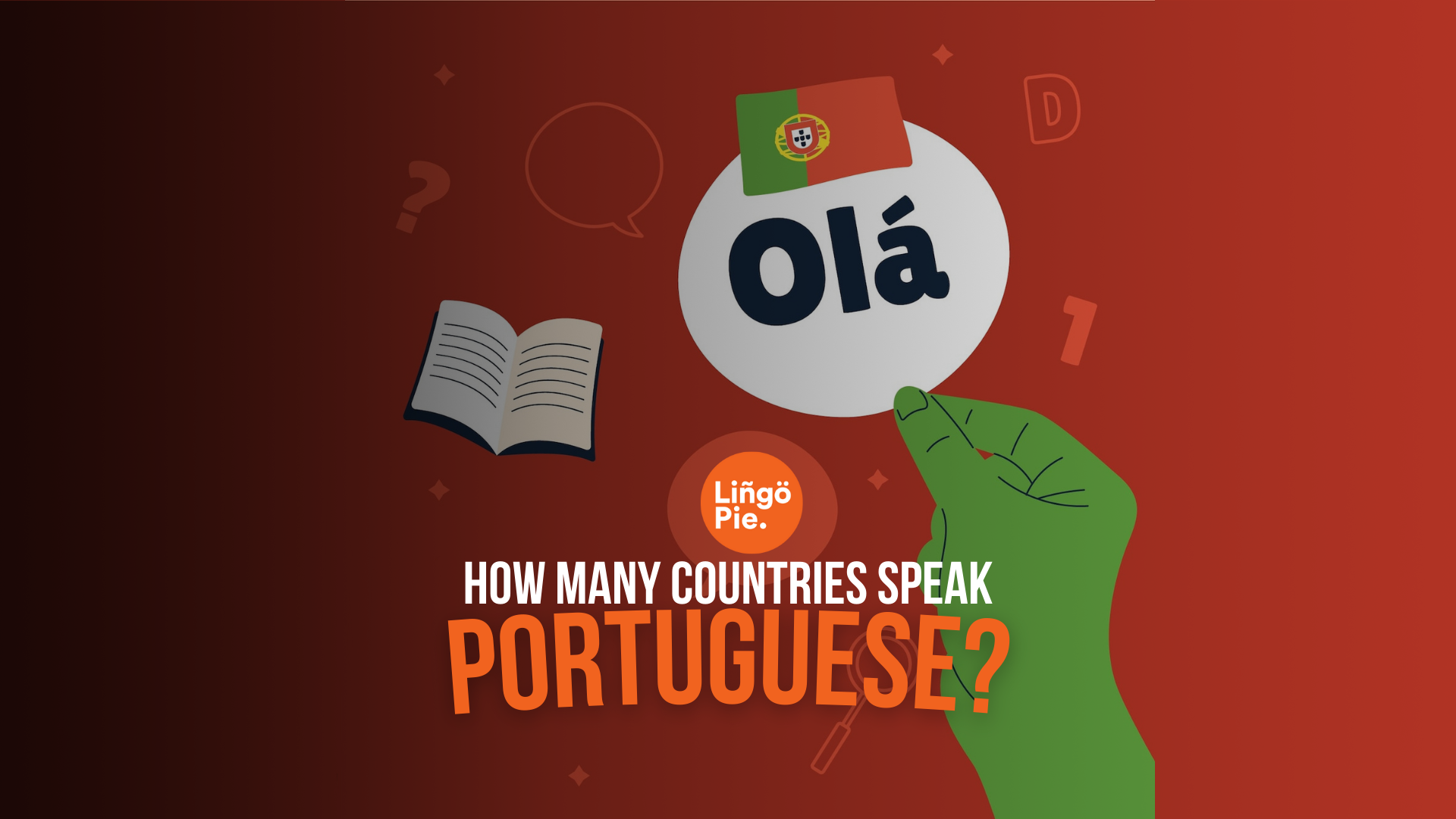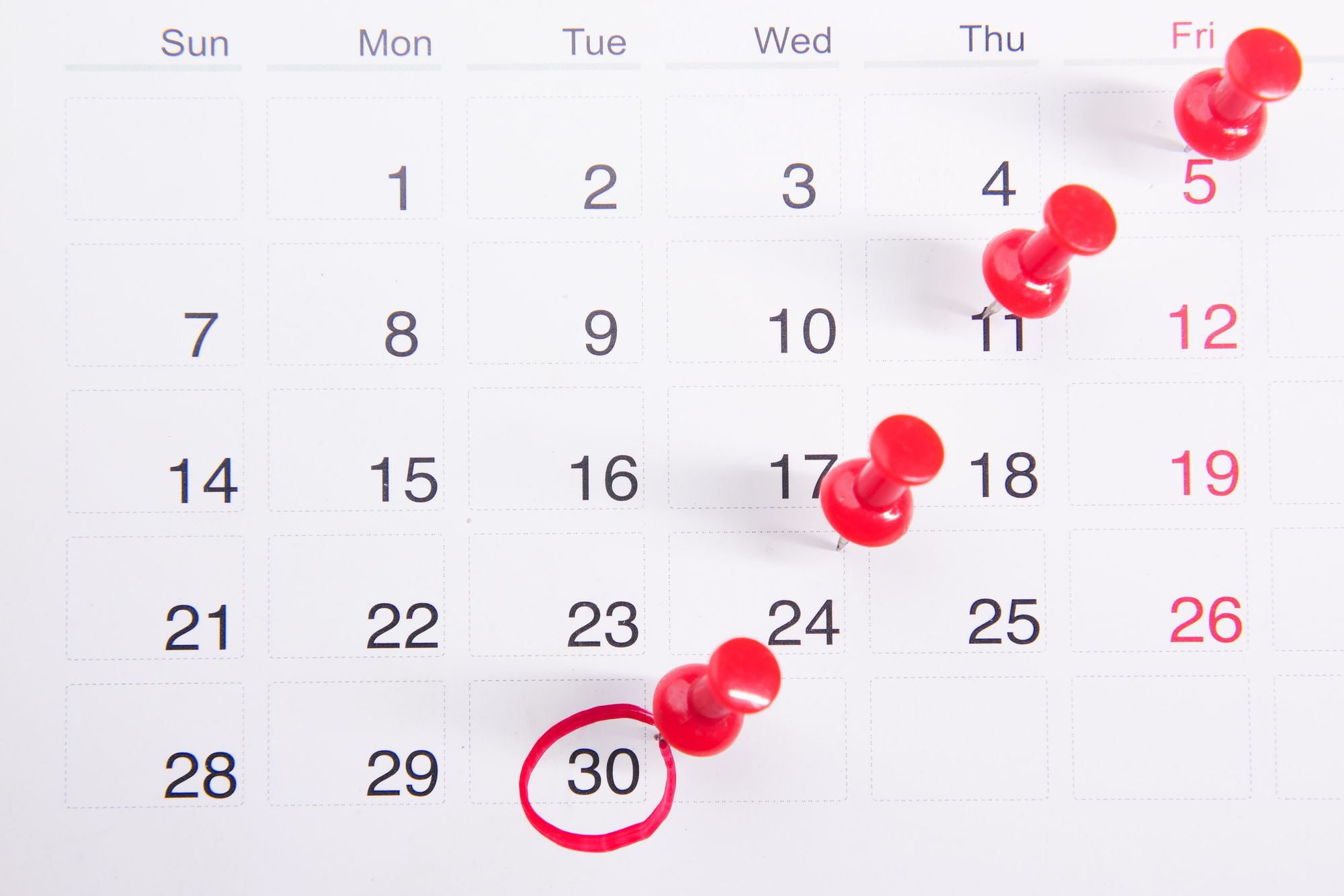Bem-vindo/a! If you've come across this article, you're most likely on a journey to learn the Portuguese language! And trust me... you're doing the right thing by starting with the basics!
Speaking of basics, you might want to check out our awesome guide to counting in Portuguese. Mastering how to say the numbers will also help you to learn the days of the week.
Whichever reason you have for learning Portuguese, be it personal or professional, you'll need to learn how to say the days of the week.
This will help you arrange a date with someone if you live in a Portuguese-speaking country or ask about your flight date, for example, if you're just visiting.
In this blog post, we'll teach you everything you need to know about the days of the week in Portuguese and we hope you'll have fun while learning them!
When you've finished reading, don't forget you can learn Portuguese on the Lingopie platform for an immersive learning experience.

Learning Portuguese Days of the Week
The days of the week in Portuguese do not follow the same pattern as in other romance languages, such as Spanish, French or Italian. You won't be able to use your Spanish skills to get by!
Despite being a lot easier to learn than Japanese or Arabic, learning Portuguese is no easy feat.
In fact, Portuguese might be one of the hardest to learn among the Latin languages due to the fact that it isn't a phonetic language, as opposed to other languages like Spanish or Italian, for instance.
Days of the week in Portuguese: Os dias da semana
Let's begin by looking at the written Portuguese word for each day of the week, followed by its translation into English.
Then, we'll teach you how to pronounce them!
- Segunda-feira = Monday
- Terça-feira = Tuesday
- Quarta-feira = Wednesday
- Quinta-feira = Thursday
- Sexta-feira = Friday
- Sábado = Saturday
- Domingo = Sunday
You'll notice that all the days of the work week end in -feira, which means fair or market. You might also notice that they start with the ordinal numbers, from second to sixth.
This way of naming the days of the week is exclusive to the Portuguese language and we'll teach you about the history behind it later on in this blog post.
Segunda-feira (Monday)
- Pronunciation: say-GOON-duh-FAY-ruh
- Literal meaning: "Second fair"
Why "segunda" (second)? In Portuguese, the week traditionally begins on Sunday, making Monday the second day.
Terça-feira (Tuesday)
- Pronunciation: TER-suh-FAY-ruh
- Literal meaning: "Third fair"
The cedilla (ç) in "terça" gives the "c" an "s" sound. Without it, the word would be pronounced "ter-KUH."
Quarta-feira (Wednesday)
- Pronunciation: KWAR-tuh-FAY-ruh
- Literal meaning: "Fourth fair"
While there's no exact equivalent to the English "hump day," you might hear "meio da semana" (middle of the week).
Quinta-feira (Thursday)
- Pronunciation: KEEN-tuh-FAY-ruh
- Literal meaning: "Fifth fair"
In Portuguese, the days of the week from Monday to Friday are collectively referred to as "dias úteis" or useful days. This is because these are considered the normal working days of the week, in contrast to the weekend.So while Thursday may be the fifth day, it is still part of the regular working week in Portuguese-speaking countries.
Sexta-feira (Friday)
- Pronunciation: SAYSH-tuh-FAY-ruh
- Literal meaning: "Sixth fair"
"Sextou!" - A combination of "sexta" and "chegou" (arrived), expressing excitement for the weekend.
Sábado (Saturday)
- Pronunciation: SAH-bah-doh
Sábado and Domingo don't follow the "feira" pattern. They derive from the Latin "Sabbatum" (Sabbath) and "Dominicus" (Lord's Day) respectively.
Domingo (Sunday)
- Pronunciation: doh-MEEN-goh
In Portugal and Brazil, Sunday is often reserved for family gatherings and long lunches.

How to pronounce the days of the week in the Portuguese language
Take a look at how the seven days of the week are written phonetically in English so you'll know what sounds to make while saying them.
The stressed syllable is the one in italics.
- (Say-goon-dah fay-ee-rah)
- (Tayr-sah fay-ee-rah)
- (Kwar-tah fay-ee-rah)
- (Keen-tah fay-ee-rah)
- (Say-eesh-tah fay-ee-rah)
- (Sah-bah-doo)
- (Doo-meen-goo)
Have you given it a go?

The weekend in Portuguese
- O fim-de-semana = the weekend
- Eu gosto muito do fim-de-semana = I like the weekend very much.
- Mal posso esperar pelo fim-de-semana = I can't wait for the weekend.

Portuguese days of the week in context
When it comes to languages, context is everything!
So, we're going to outline a few example sentences. This way, you can see how the days of the week in Portuguese are used in practice and thus learn how to use them.
EXAMPLE SENTENCES:
- Hoje é sexta-feira = Today is Friday.
- Eu vou ao supermercado à segunda-feira = I go to the supermarket on Mondays.
- Eu não gosto de segunda-feira = I don't like Mondays.
- A loja fecha à terça-feira = The shop closes on Tuesdays.
For some more complex examples:
- Na segunda-feira passada fomos à praia = Last Monday we went to the beach.
- Na quinta-feira que vem vamos jantar fora = Next Thursday we're going out for dinner.
- No domingo passado fomos passar o dia no campo = Last Sunday we spent the day in the countryside.
- O que é que vais fazer na quarta-feira? = What are you doing on Wednesday?
Essential Portuguese Phrases for Days of the Week
In Portuguese, discussing time and days goes beyond just knowing how to say "Monday" or "Friday." It's about mastering a set of phrases that will make you sound like a local and ensure you're never lost in the flow of the week.
Whether you're a beginner looking to build confidence or an intermediate learner aiming to polish your skills, these essential phrases will help you discuss days, make plans, and navigate your schedule with ease in Portuguese-speaking countries.
| Portuguese Phrase | English Translation | Usage Context |
|---|---|---|
| Que dia é hoje? | What day is it today? | Asking about the current day |
| Hoje é [dia da semana]. | Today is [day of the week]. | Stating the current day |
| Que dia da semana é o seu favorito? | What's your favorite day of the week? | Casual conversation |
| [Dia] que vem | Next [day] | Referring to the upcoming day |
| [Dia] passado | Last [day] | Referring to the previous occurrence of a day |
| Nos vemos na [dia da semana]. | See you on [day of the week]. | Making future plans |
| Tenho um compromisso na [dia da semana]. | I have an appointment on [day of the week]. | Discussing schedules |
| A reunião é toda [dia da semana]. | The meeting is every [day of the week]. | Talking about recurring events |
| Bom fim de semana! | Have a good weekend! | Wishing someone well for the weekend |
| Como foi seu fim de semana? | How was your weekend? | Monday morning small talk |
| Sextou! | It's Friday! (informal) | Expressing excitement for the weekend |
| Dia útil | Weekday | Referring to Monday through Friday |
| Que dia cai o feriado? | What day does the holiday fall on? | Asking about holiday dates |
| De segunda a sexta | From Monday to Friday | Describing weekday activities |
| Fim de semana prolongado | Long weekend | Discussing extended weekends |
Remember, practice makes perfect! Try incorporating these phrases into your daily Portuguese practice, and soon you'll be discussing days and making plans like a native speaker. Boa sorte! (Good luck!)
Portuguese articles: Why do we need them?
In Portuguese, definite articles are not used in the same way as in English.
Firstly, they're gendered, so they have feminine and masculine forms, as well as singular and plural forms.
Singular articles in Portuguese:
- o / a = the
Plural articles in Portuguese:
- os / as = the
A few examples would be:
- O dia = the day
- A semana = the week
- Os dias da semana = the days of the week
You'll notice that both translate to 'the' in the English language.
However, the definite article o is masculine and the article a is feminine.
Usually, masculine Portuguese words end in -o and feminine words end in -a.
There are exceptions to that rule and as you can see in the example above, dia is one of them.
Using Portuguese articles with the days of the week

When it comes to talking about the days of the week in Portuguese, generally speaking, you have the option of using an article or not, unless you're discussing a repetitive action, in which case you will have to use it.
Nonetheless, articles in the Portuguese language can be a bit tricky because they go through a phenomenon of contraction with prepositions, which means they merge and become one word only.
Let's see how that works in practice!
Prepositions:
- em = in / on / at
- a = to / at
Prepositions + articles:
- em + o = no
- em + a = na
- a + o = ao
- a + a = à
Some examples of sentences that would require articles are:
- Na segunda-feira vou ao médico = I'm going to the doctor on Monday.
- No domingo vamos almoçar a casa da minha avó = On Sunday we're going to have lunch at my grandmother's house.
- Tenho aula de português à quinta-feira = I have portuguese class on Thursdays.
Here are some examples of sentences where you could omit the article:
- Eu vou para lá quinta-feira = I'm going there (on) Thursday.
- Segunda-feira é dia de lavar a roupa = Monday is laundry day.
FAQs Relating to the Portuguese Days of the Week
Let's take a look at frequently asked questions relating to the days of the week in Portuguese and how to memorize them.
How do you remember the days of the week in Portuguese?
The first thing to remember is that for naming purposes, the first day of the week is Sunday, not Monday. Once you've memorized that, you'll be good to go!
So, since Monday is the second day of the week, you can start counting from there... Segunda-feira (second fair or Monday), terça-feira (third fair or Tuesday), quarta-feira (fourth fair or Wednesday), quinta-feira (fifth fair or Thursday) and sexta-feira (sixth fair or Friday).
Sábado (Saturday) and domingo (Sunday) don't follow the same pattern and are similar to other languages.
As you've surely noticed already, even though in ancient Latin there is a parallel between the days of the week and the moon, the planets, and the pagan gods, that's not the case in Portuguese.
Wondering why? Check out the next question.
What are the days in Portuguese named for?
According to both Portuguese culture and Catholic religious history, the first day of the holy week is domingo, Sunday or God day, the day of the Lord.
The following days, starting with segunda-feira (Monday) were named after the fairs or markets that took place during the Holy Week or Semana Santa, the week of rest that preceded Easter.
The reason for this is that during the 6th century AD, the Archbishop Martin of Braga decided to move away from the pagan Latin nomenclature that was used up until that point (and still is in other Latin languages) and use a more Christian approach.

How do you abbreviate the days of the week in Portuguese?
Native speakers both in Portugal and Brazil will abbreviate the days of the week by using the ordinal number only and dropping the -feira suffix.
Like so:
- Segunda
- Terça
- Quarta
- Quinta
- Sexta
- Sábado
- Domingo
In written language, however, you would abbreviate them like this:
- 2a feira or 2a
- 3a feira or 3a
- 4a feira or 4a
- 5a feira or 5a
- 6a feira or 6a
- Sáb.
- Dom.
Useful expressions relating to time in Portuguese
Now let's introduce you to some vocabulary related to time that will come in handy!
- Dia = day
- Hoje = today
- Amanhã = tomorrow
- Ontem = yesterday
- Depois de amanhã = the day after tomorrow
- Sexta-feira à noite = Friday night
- Que vem = next
- Próximo/próxima = next

Example sentences:
- Na sexta-feira que vem temos um concerto = We have a concert next Friday.
- Depois de amanhã é quarta-feira = The day after tomorrow is Wednesday.
- Ontem era terça-feira = Yesterday was Tuesday.
- Sexta-feira é o melhor dia da semana = Friday is the best day of the week.
Learning Portuguese Days Of The Week
As someone who once thought "segunda-feira" was a fancy way to say "see you later," I can tell you there's a better way to learn than staring at flashcards until your eyes cross.
My secret language learning app? Lingopie!
After using Lingopie for 1 month, I found myself picking up not just the words, but the rhythm of how real people use them. Before I knew it, I was casually dropping "Sextou!" (It's Friday!) into conversations like I'd been speaking Portuguese all my life.
So if ever you find yourself wanting to learn on Lingopie, be sure to check these:
- 10 Best Portuguese Movies on Netflix to Learn Portuguese[For Beginners]
- 7 Best Kids’ Shows to Learn Portuguese
- Turn of the Tide [Rabo de Peixe]: Learn European Portuguese with Netflix
- Learn Portuguese with 3%
- The 8 Best Brazilian Movies on Amazon Prime Video to Learn Portuguese [Movie Tips]
Learn Portuguese With Lingopie
In this post, we've taught you how to say the days of the week in Portuguese so you can navigate your next vacation in Brazil, Portugal or any other Portuguese-speaking country.
Another great tip for those planning to visit a Portuguese-speaking country is to go through our article about Portuguese Phrases for Travel.
Moreover, we've outlined some important vocabulary for you to know, including sentences and words to help you use specific days of the week in context.
Since the days of the week in Portuguese don't follow the same pattern as the rest of the Latin languages, you might need a little bit of extra practice to get the hang of it. You should know by now that it's pretty straightforward once you do.
Try out Lingopie and have fun while you learn Portuguese! Give it a try and sign up for a free trial.
Bom fim de semana a todos!









![How To Learn Portuguese Fast? [Best 2025 Guide]](/blog/content/images/size/w300/2024/08/Lingopie-2.png)
